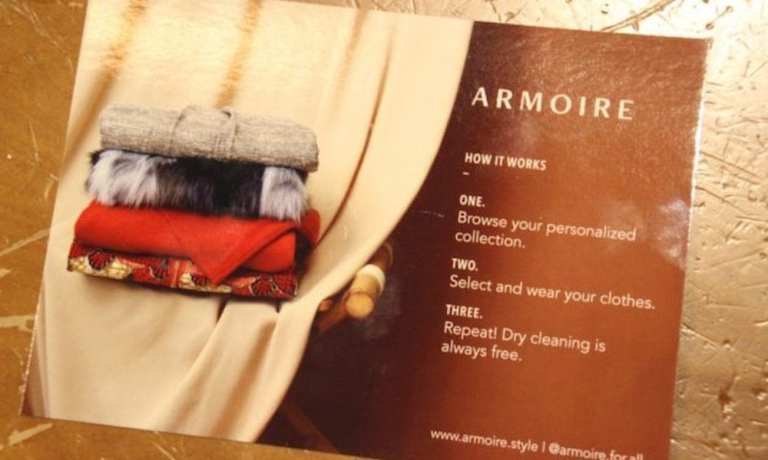Armoire And Building A Fashion Brand That Isn’t A Fashion Brand

Women spend a lot of time shopping for clothes each year — by some estimates some 200 hours, or about 8.3 days. Interestingly, though, they aren’t wearing all the clothes they spend so much time looking for: about 20 percent of new clothes go immediately to a closet where they remain, unworn, until they are sent on to a landfill.
It’s a staggering amount of waste — and a criminally inefficient process according to Armoire CEO Ambika Singh.
“It’s an extraordinary amount of time in terms of the productive hours that could translate to,” Singh told Geekwire.
It’s time that can, and should, be better spent, according to Singh — and that is what inspired her to start her monthly fashion subscription business. The goal, she said, is to break customers free of buying in favor of a model that lets them experiment more — and ultimately pay less. For $150 per month, subscribers at the three-year-old firm can rent designer outfits and then exchange them for something new whenever they like. For those items that make a particularly strong impression, members have the option of buying at a discounted rate.
“Renting clothes gives you an opportunity to step outside what is standard for you on an individual consumer basis,” Singh said. “That is a really powerful experience.”
A powerful experience that Armoire didn’t invent, of course — Gwynnie Bee and Rent the Runway both offer similar services for professional women in terms of unlimited wardrobe rental. But Armoire says it is a bit different from the other players in the field.
“We’re not really like a fashion company,” Zach Owen, co-founder of Armoire and its engineering lead, said at a recent industry event. “We are more like a data company.”
And, Singh noted, a technology company that uses its artificial intelligence (AI) to one specific purpose — curating the right outfits to the right buyers. That experience, she said, is not quite there yet at other fashion rental sites. At the end of the day, she said, the user is still going to be clicking through a lot of choices to find what they want.
“[Rent the Runway] has really not taken advantage of the fact that they can service customers better through curation,” she said. “We call it the hunter-gatherer method — women are still tasked with digging through literally the entire Rent the Runway inventory.”
Amoire’s AI scans customer preferences and item attributes, and then draws correlations between them to lay out a virtual closet offering for customers. It also analyzes data like customer location and weather patterns to make sure what it is offering is seasonally appropriate. The more data the firm gets from the customer — i.e. the more outfits they rent — the better the algorithm learns their preferences and the better its recommendations become. On top of all that automation, Armoire also layers the human touch with in-house stylists who can help get the algorithms over the finish line with recommendations.
Armoire is also designed to keep up with flux in a consumer’s style and sizing — because as Head of Product Miriam Subbiah noted, people change.
“We know that size is constantly in flux,” she explained. “If a service like Armoire can actually understand that and support that instead of inhibiting it — that’s super liberating to me. It’s a much more positive way of thinking about sizing and interacting with clothing, than trying to fit in a numeric standard. It’s not a fashion-first approach but it’s something we can do because of the data.”
Armoire is a young brand, about three years old, and a little under half of its customer base comes from its hometown of Seattle. Its target market is a bit older than that of other players in the clothes rental space: professional women ages 30 to 50, a group Singh believes has been too often overlooked in retail corners despite impressive spending power and willingness to buy. It’s why, Singh noted, Armoire has also sought to elevate the level of its product offerings.
“We’re also high end contemporary from an inventory perspective — average MSRP is $250-plus — and we strive to work with women owned and ethical fashion brands.”
The young company has thus far raised only $4.2 million, and is competing against players with valuations north of $1 billion. But Armoire remains confident that its secret sauce is in its curation technology — and that ultimately it can help women dress better, feel better and endure less stress.